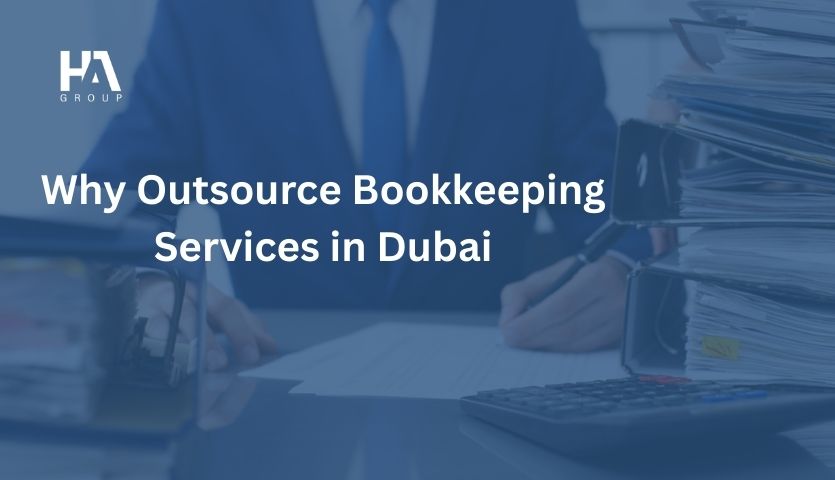Let’s be honest—bookkeeping isn’t the most glamorous part of running a business. Nobody wakes up saying, “Yes! Can’t wait to reconcile those accounts today.” But in Dubai, where businesses move fast and regulations are tight, bookkeeping is the quiet backbone that keeps everything upright.
Now, here’s the thing: more and more companies in Dubai are outsourcing this work. And not just because it’s cheaper (though it usually is). It’s about time, accuracy, and—let’s face it—sanity.
So, should you do the same? Let’s walk through it, without the usual cookie-cutter explanations.
The Reality of Bookkeeping in Dubai
Running a business here isn’t like running one anywhere else. Dubai has its own blend of free zones, mainland structures, tax rules, and reporting standards. Miss one deadline or file the wrong numbers with the Federal Tax Authority, and you’ll quickly learn what “penalty” means in dirhams.
This is where the question comes in: Do you really want to spend your energy figuring out VAT adjustments, bank reconciliations, and end-of-year audits? Or would your time be better spent closing deals, scaling operations, or simply thinking about your next big move?
Because here’s the truth—bookkeeping isn’t hard in theory, but it eats up time. Hours you don’t get back.
Why Outsource Instead of Hiring In-House?
At first, most entrepreneurs think: “I’ll just hire an accountant.” And sure, having someone on payroll sounds nice. But here’s the catch.
An in-house accountant means salary, benefits, workspace, and continuous training. Dubai’s compliance rules change—sometimes overnight. You’ll need someone constantly up-to-date. Not to mention, if your business is still young, you may not even have enough transactions to keep them busy all month.

Outsourcing, on the other hand, is flexible. Pay only for what you need. Heavy season? Scale up. Quiet months? Scale down. No fixed overheads.
Think of it like this: instead of owning a car and dealing with insurance, parking, and maintenance, you just book a ride when you need one. That’s outsourcing in a nutshell.
What Outsourced Bookkeepers Actually Do
Outsourcing isn’t just about dumping a pile of receipts on someone’s desk and calling it a day. The services usually cover:
- Recording daily transactions
- Reconciling bank statements
- Managing accounts payable and receivable
- Preparing VAT returns (a big deal in Dubai)
- Generating financial statements
- Prepping for audits
- Offering insights into cash flow and budgeting
Some firms even throw in financial consulting as part of the package—helping you read between the numbers, not just stack them neatly in a report.
The Dubai Advantage
Dubai is unique in that it attracts businesses from literally everywhere—tech startups, family offices, trading companies, real estate investors, you name it. That diversity creates one big challenge: not every business fits the same accounting mold.
Free zones, for instance, often come with their own compliance requirements. Mainland companies deal directly with federal rules. Throw in cross-border transactions, multiple currencies, and VAT complexities, and suddenly, bookkeeping isn’t just “data entry.” It’s a whole strategy.
That’s why outsourcing here has gained traction. Firms that specialize in Dubai’s ecosystem already know the pitfalls. They’ve seen the same issues repeat across dozens of businesses and know how to fix them before they snowball.
Cost: Not Just About Saving Money
People often frame outsourcing as a way to “cut costs.” True, it usually is cheaper than hiring in-house. But that’s not the whole story.
The real value? Accuracy and peace of mind. One miscalculated VAT return can lead to fines. A missing expense entry could distort your profit margins. When professionals handle it, you’re not just saving money—you’re avoiding costly mistakes.
And let’s not forget the hidden win: focus. Imagine having your evenings free because you’re not hunched over Excel trying to figure out why your numbers don’t add up. That mental space alone is worth outsourcing.
What to Look for in a Service Provider
If you’re thinking of outsourcing, don’t just go with the first firm that pops up on Google. Look for:
- Experience with UAE regulations (not all accountants are familiar with Dubai’s specific rules).
- Scalability—can they grow with your business?
- Transparency—you want clear reporting, not black-box accounting.
- Tech-savvy systems—cloud-based platforms save headaches.
- Support when needed—bookkeeping isn’t just numbers, it’s advice too.
Many firms, including HA Group, offer bookkeeping as an add-on service alongside business setup and corporate solutions. That’s convenient—you’re not just outsourcing numbers, you’re plugging into a wider support system that already understands your company.
Outsourcing Isn’t “Giving Up Control”
Here’s a misconception: “If I outsource, I’ll lose control of my finances.”
Not true. Outsourcing doesn’t mean disconnecting. It means someone else is handling the nitty-gritty while you stay in the driver’s seat. The reports, statements, and dashboards are still yours. You decide based on the numbers—they just make sure the numbers are right.

Think of it like having a co-pilot. You’re still flying the plane, but someone’s watching the radar, handling the communications, and making sure you don’t miss anything important.
The Bottom Line
In Dubai’s competitive, fast-moving market, outsourcing bookkeeping isn’t just a “nice-to-have.” For many businesses, it’s the difference between running smoothly and constantly firefighting.
At the end of the day, your books tell your story—where money comes in, where it goes, what’s left. You can either spend hours writing that story line by line, or you can hand it to someone who already knows how to shape it cleanly and correctly.
If you’re serious about growth, the choice is pretty clear. Outsource the bookkeeping. Free your headspace. And use that time and clarity to focus on the part of business you actually enjoy.
Reacommended Articles:
The Golden Rules of Accounting – A Practical Guide for UAE Businesses!
What Are the Three Types of Bookkeeping?
What Do Bookkeepers Charge Per Hour in the UAE?
What Are 2 Differences Between Bookkeeping and Accounting?
How to Start a Bookkeeping Business in Dubai in 2025: A Real-World Guide







